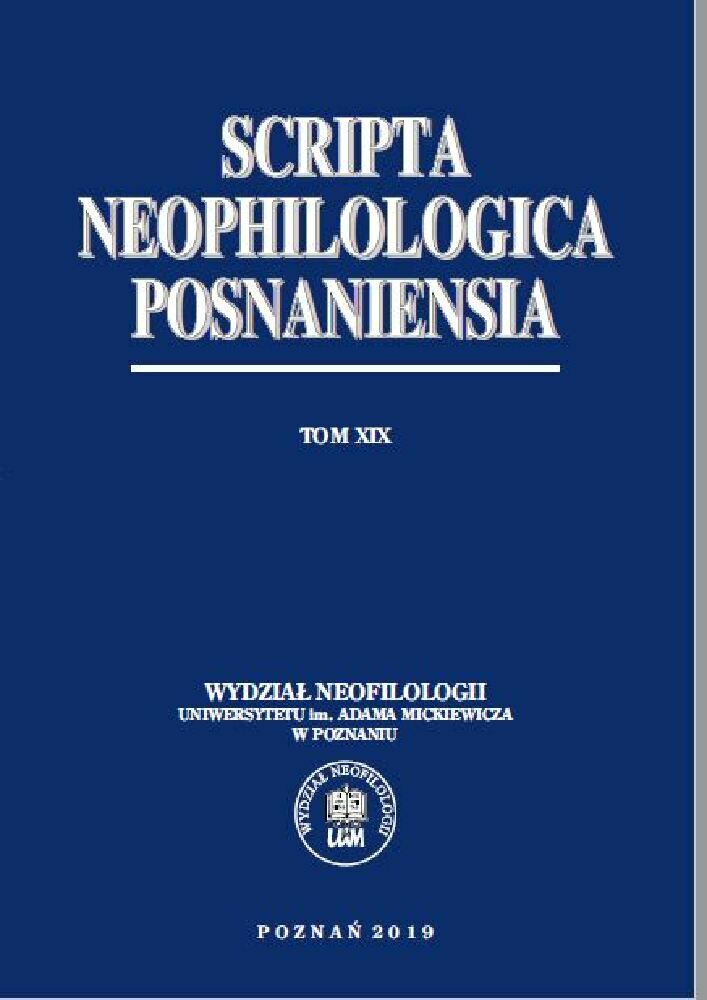Abstract
This paper discusses the special interest the Third Reich ideologues had for Germanic minority languages. In particular, the situation in Friesland, Flanders and Brittany is addressed. Moreover, it is made clear how German linguists from that period tried to annex Wallonia as an original Germanic area. Finally, the consequences of this cooperation with the Nazi occupier for the post-war discussions about these minority languages are briefly indicated.
References
Bergère, M. 2006. “Les usages politiques de la seconde guerre mondiale en Bretagne: Histoire, memoire et identité regionale”. In: Crivello, M., Garcia, P. and N. Offenstadt (eds.). Concurrence des Passés.
Aix-en-Provence: Presses universitaires de Provence: 103-110.
Boissou, L. 2002. “L’Allemagne et le nationalisme breton. ” In: Bougeard. 321-336.
Bougeard, Ch. (ed.) 2002. Bretagne et identités pendant la Seconde Guerre Mondiale. Brest: CRBC-UBO.
Broderick, G. 2019. Under the ‘Three-legged-swastika’: Celtic studies and Celtic revival in the Isle of Man in the era of national socialist/fascist ideology [revised and enlarged version of Broderick 1999 and 2004]. Retrieved 02.05.2019 from https://www.academia.edu/38660261/Under_the_Three-Legged-Swastika_Celtic_Studies_and_Celtic_Revival_in_the_Isle_of_Man_in_the_era_of_National_Socialist_Fascist_ideology
Burleigh, M. and W. Wippermann. 1991. The racial state, Germany 1933-1945. Cambridge: Cambridge University Press.
Conway, M. 1994. Degrelle: les années de collaboration: 1940-1944: le rexisme de guerre. Ottignies: Quorum.
De Jonghe, A. 1972. Hitler En het Politieke Lot van België (1940-1944). Antwerpen: De Nederlandsche Boekhandel. Vol. 1.
Denis, M. 2002. “Le mouvement breton pendant la guerre; un bilan. ”. In: Bougeard. 151-166.
De Weever, B. 1994. Greep naar de macht. Vlaams-nationalisme en Nieuwe Orde. Het VNV 1933-1945. Tielt/Lannoo: Perspectief.
Dolderer, W. 2003. “René De Clercq en Duitsland”. Retrieved 23.04.2019 from www.rene-declercq. be/RDCweb/eigenpublicaties/RDC en Duitsland 2003.pdf
Frieswijk, J. 1998. “Was er in Friesland een voedingsbodem voor het nationaal-socialisme?” Doopsgezinde Bijdragen, Nieuwe Reeks nummer 24. 263-271.
Jacob, J.E. and D.C. Gordon. 1985. “Language policy in France.” In: Beer, W.R. and J.E. Jacob (eds.). Language policy and national unity. Totowa, N.J.: Rowman and Allanheld. 106-133.
Hamans, C. 2016. “Language policy in the Netherlands.” Scripta Neophilologica Posnaniensia XVI. 41-61.
Koehler, A. 2011. Die Helder der Fianna: Goethe und Ossian. Wetzlar: Phantastische Bibliothek.
Lerchenmueller, J. 1997. “Keltischer Sprengstoff”: eine wissenschaftsgeschichtliche Studie über die deutsche Keltologie von 1900 bis 1945. Tübingen: Niemeyer.
Longerich, P. 2010. Holocaust: The Nazi persecution and murder of the Jews. Oxford: Oxford University Press.
Luyken, R. 1996. “Keltologie: Über die Verquickung von Wissenschaften und Nationalsozialismus”. Die Zeit 19.07.1996.
Petri, F. 1937. Germanische Volkserbe in Wallonien und Frankreich. Die fränkische Landnahme in Nordfrankreich und den Niederlanden und die Bildung der westlichten Sprachgrenzen. Bonn: Röhrscheid. 2 Vols.
Robins, R.H. and E.M. Uhlenbeck (eds.). 1991. Endangered languages. New York: Berg Publishers.
Simon, G. 1982. “Zündschnur zum Sprengstoff. Leo Weisgerbers Keltologische Forschungen und seine Tätigkeit als Zensurofficier in Rennes während des 2. Weltkriegs.” Linguistische Berichte 79: 30-52.
Sonntag, S.K. 2003. The local politics of global English. Case studies in linguistic globalization. Lanham, Maryland: Lexington Books.
Wood, I. 2013. The modern origins of the Early Middle Ages. Oxford: Oxford University Press.
Zondergeld, G. 1981. “Vlaamse en Friese beweging, een vergelijking.” Vlaams Marxistisch Tijdschrift 15.3 retrieved 20.02.2019 from www.marxists.org./nederlands/zondergeld/1981friesland.htm
